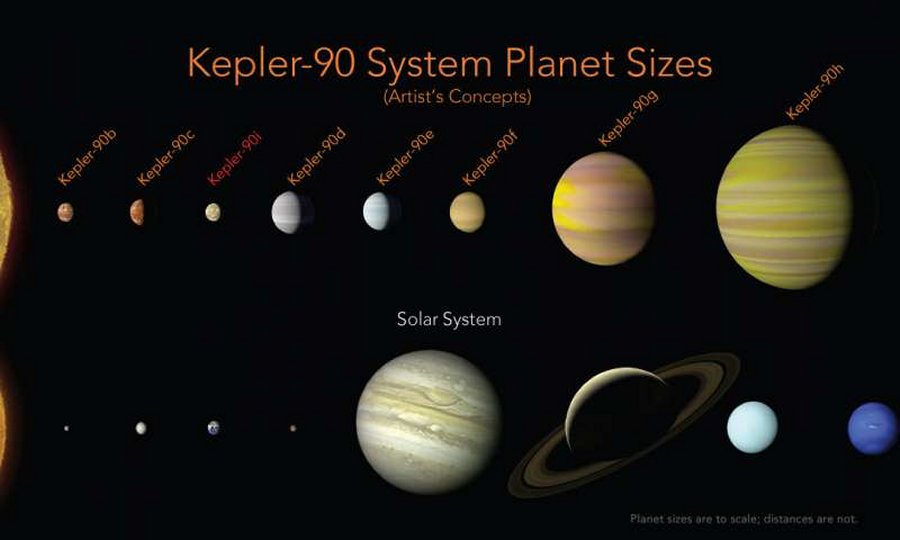MessageToEagle.com – An eighth planet circling Kepler-90, a distant, Sun-like star 2,545 light years from Earth was discovered in data from NASA’s Kepler Space Telescope.
The planet dubbed Kepler-90i is a super-hot, rocky alien world that orbits its star once every 14.4 days.

The discovery was made with the help of machine learning technology from Google. Two researchers – astronomer Andrew Vanderburg from the University of Texas at Austin and and Google software engineer Christopher Shallue trained a computer to learn how to identify exoplanets in the light readings recorded by Kepler.
“The Kepler-90 star system is like a mini version of our solar system. You have small planets inside and big planets outside, but everything is scrunched in much closer,” said Vanderburg, a NASA Sagan Postdoctoral Fellow and astronomer at the University of Texas at Austin.
The discovery means that the Kepler-90 system in the constellation Draco, is now tied with our own solar system for the greatest number of planets around a single star.
Machine learning enabled NASA computers to “learn” to examine Kepler data to spot telltale signs of exoplanets — tiny dips in a star’s brightness caused by a planet passing in front it. The AI technology makes it possible to find some of the weakest signals from distant exoplanets, as it did with the previously missed Kepler-90i, according to the researchers.
Kepler-90i is not the best candidate for life as we know it. About 30 percent larger than Earth, Kepler-90i is so close to its star that its average surface temperature is believed to exceed 800 degrees Fahrenheit (427 degrees Celsius), on par with Mercury. Its outermost planet, Kepler-90h, orbits at a similar distance to its star as Earth does to the Sun.
MessageToEagle.com
Expand for referencesReferences:







